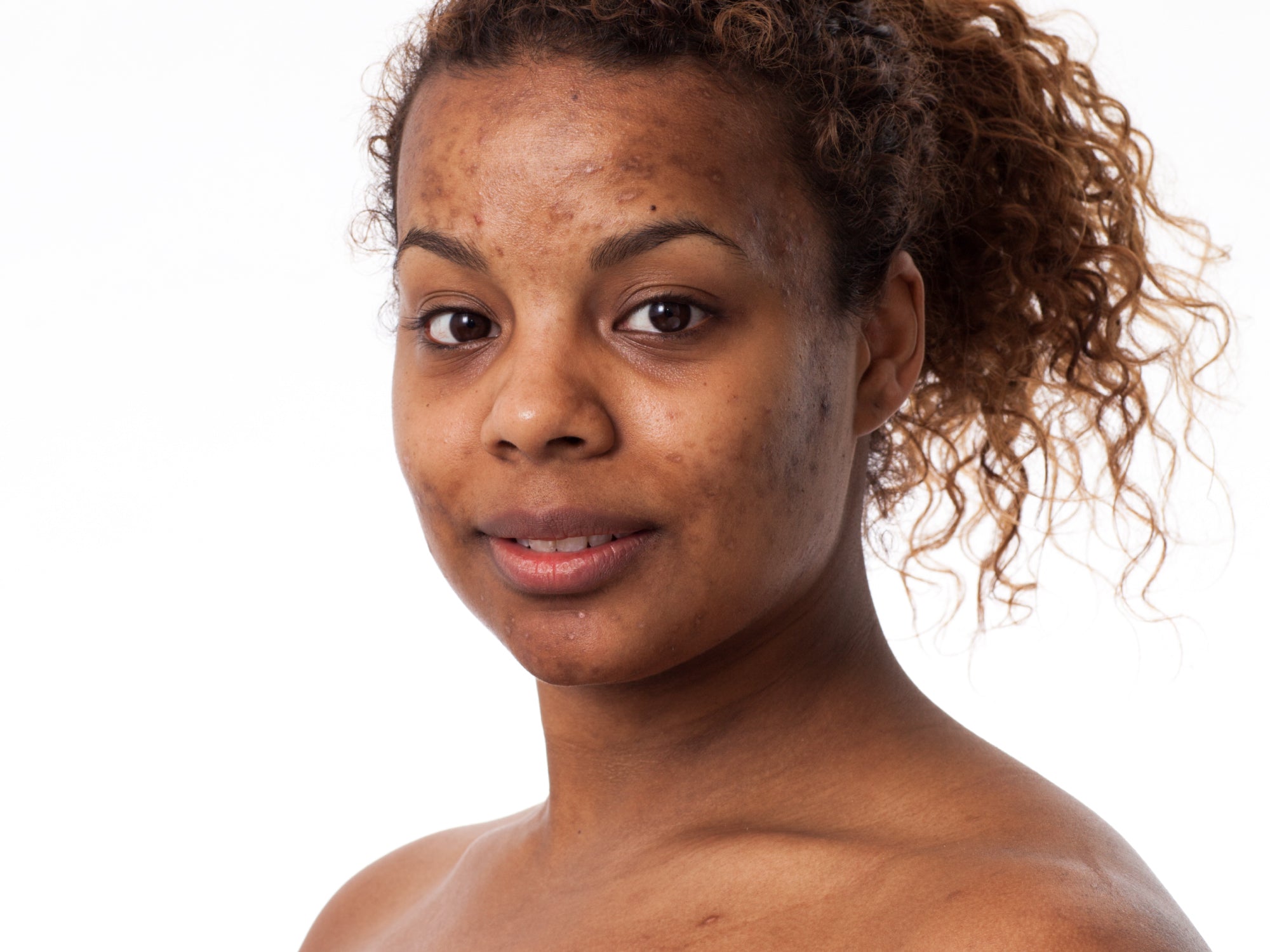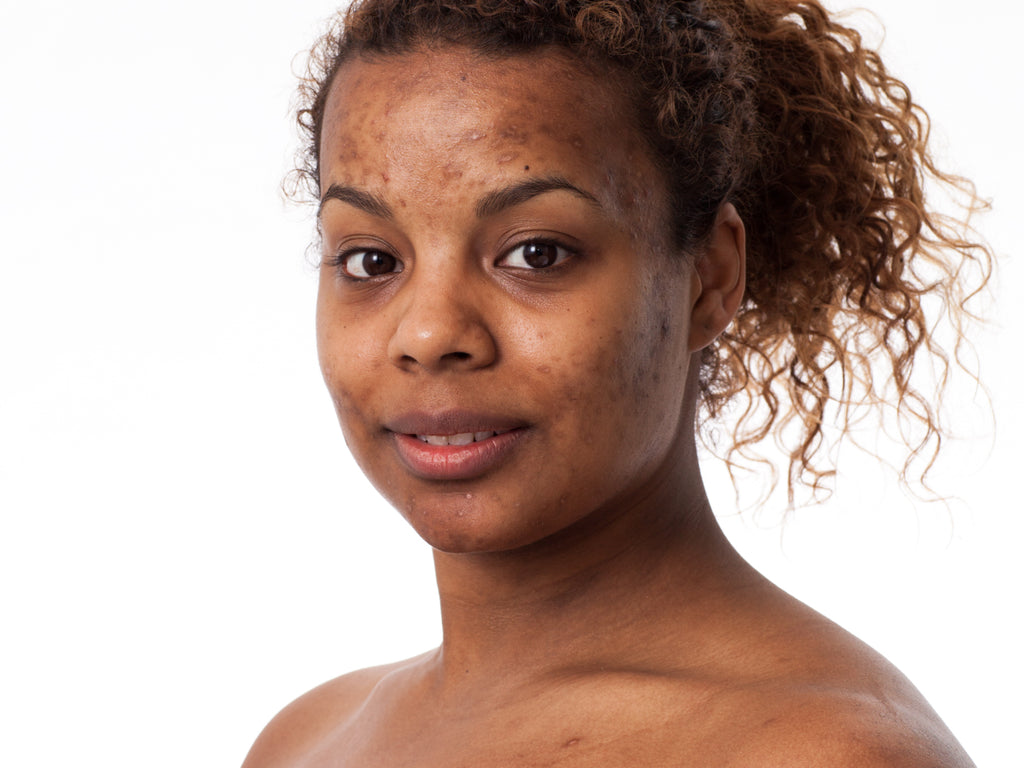Post-inflammatory hyperpigmentation (or PIH) manifests differently on different skin types and tones, so there’s no easy answer to what it looks like, and sometimes it can be hard to distinguish from other skin conditions.
However, in contrast to raised, bumpy rashes, PIH is flat and smooth, showing up as differently coloured patches of skin, whether spots, blotches or wider areas. It’s characterised by areas of discolouration in the place where inflammation has occurred, whether it was due to acne, eczema, psoriasis, an allergic reaction or trauma to the skin.
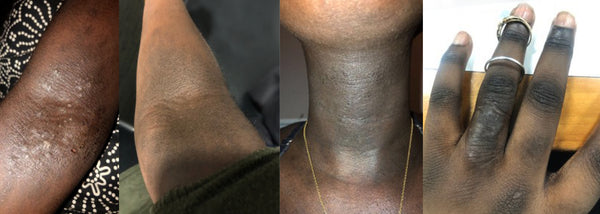
PIH can be grey, purple, brown, black or blueish, depending on the original tone of the affected skin.
On skin of colour it can appear considerably darker than the surrounding area, but can also appear as lighter patches of grey or whiteish skin.
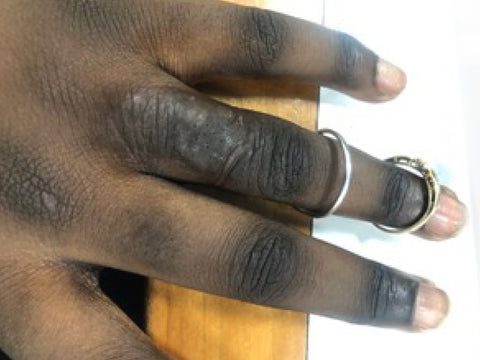
It’s worth noting that PIH occurs more frequently and more severely on dark skin, and can take longer to fade away, but is also less often reported and, because dermatological research tends to focus on white skin, PIH in people of colour can be confused with other skin conditions. (Over 65% of African Americans have experienced PIH, for example.)
On white skin, PIH is more likely to be darker red, purple or pink.
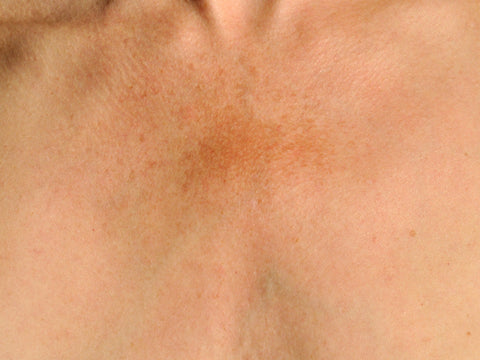
For more information on post-inflammatory hyperpigmentation, see our next blog What Causes Post-Inflammatory Hyperpigmentation? or read Alaa Hassan’s personal experience of PIH in her article Post-Inflammatory Hyperpigmentation, Eczema & Me
Images at the top of the page, courtesy of Alaa Hassan.
Recommended products:
Balmonds Skin Salvation balm to nourish and moisturise skin during an inflammatory episode
Balmonds Daily Moisturising Cream for daily maintenance of dry, sensitive skin
Balmonds Rosehip Scar Oil for long-term application to help improve the appearance of uneven or hyperpigmented skin tone